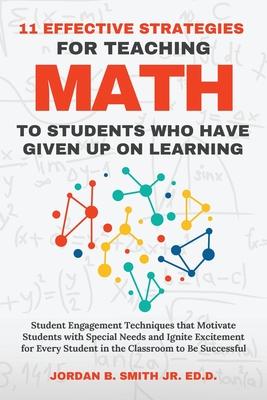Student Engagement Techniques that Motivate Students with Special Needs and Ignite Excitement for Every Student in the Classroom to Be Successful
Motivating teenagers to learn is a tough job... Encouraging them to enjoy math is more complicated than the Riemann Hypothesis!
Math has undoubtedly gotten a bad reputation for being a subject that involves endless calculations and problems that will never be used in the real world, especially now that we all walk around with calculators in our pockets!
But the fact is that math is required in multiple areas of an adult's life, from preparing recipes to managing finances, and that's without a career in STEM.
Neurodivergent students have even more of a difficult time with math as it can take more time and effort to understand complex concepts.
At the same time, as students with special needs have significant difficulties with transitions, math is more critical for them to make sense of the world and thrive as adults.
While students have challenges learning and enjoying math, the special needs math teacher faces many obstacles - a severe lack of resources, guidance, and effective teaching strategies.
You have some help, though. In this guide to teaching math to students who need additional support, you will discover:
- How to create a community classroom where all students feel valued, connected, and safe
- 21 of the best manipulatives your math classroom needs
- How to extrinsically and intrinsically motivate your high school students to study and learn math
- What it takes for students to overcome mistake anxiety, develop a growth mindset, and become confident in the classroom
- 15 apps to bring technology into the classroom and increase engagement in a way that is natural for students today
- Why students need real-world examples in math and how to keep it real with math
- Techniques to introduce peer-based learning to change the dynamics of your class
- How to implement proven strategies such as CVA and schema-based instruction to improve your math class
- Why you need to use the correct math vocabulary, plus a bonus detailed vocabulary list to have handy in class
- 6 techniques to help your students retain information that doesn't require hours of traditional studying and revision
- A step-by-step guide to creating your lesson plans and where to find the best resources for diverse activities across all math topics
And much more.
As a special needs teacher, your time is already limited. From meetings to paperwork, there is little time left for actual teaching. Do you have time to do more? These 11 strategies aren't about doing more. It's about getting the most out of your students effectively and practically. They will enable students to develop a deep love of math and skills they can take with them for other subjects and into adulthood.
For teachers of special needs students, this is the best gift you can give your students.
